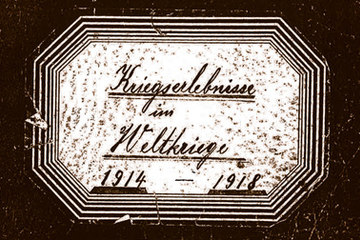On 8 January 1918, Thomas Woodrow Wilson (1856–1924), who had been President of the USA since 1913, held a programmatic speech before both houses of Congress in which he interpreted the war as a moral struggle for democracy and staked out the cornerstones for post-war Europe.
Wilson demanded a new basis for international relations: there was to be no more secret diplomacy and the peace should be negotiated ‘frankly and in the public view’. Another point concerned the establishment of a ‘general association of nations’ as a platform to afford ‘guarantees of political independence and territorial integrity to great and small states alike’. In 1920 this led to the foundation of the League of Nations, the forerunner of the United Nations, for which Wilson was later awarded the Nobel Peace Prize.
Wilson’s programme also contained a number of demands concerned with trade politics such as ‘absolute freedom of navigation upon the seas, outside territorial waters’ and the ‘the removal, so far as possible, of all economic barriers’ in international trade relations. And in a further point he made reference to a ‘free, open-minded, and absolutely impartial adjustment of all colonial claims’.
In addition to these demands, which were somewhat vaguely formulated and intended principally as food for thought and debate, Wilson’s famous ‘Fourteen Points’ speech also contained concrete demands for a new European order. Germany was to re-establish Belgium as an independent state and return Alsace-Lorraine to France. The Russian areas under German occupation were to be evacuated and given the freedom to determine their own political development. Furthermore, the new order after the conclusion of peace was to include the establishment of an independent Polish state and provide for stability in the Balkans and the Ottoman Empire.
With respect to the Habsburg Monarchy, Wilson demanded that the border to Italy be redrawn in accordance with the language spoken on either side (‘along clearly recognizable lines of nationality’). Particularly significant was the fact that Wilson supported the demand of the peoples of Austria-Hungary for guarantees of ‘the freest opportunity to autonomous development.’
The reactions were divided. The USA’s European allies were sceptical about the demands, which in their opinion were too idealistic. As from the German point of view Wilson’s demands seemed quite acceptable, Berlin interpreted the programme as a basic set of conditions for German capitulation. When the negotiations in the treaties of 1919/20 concluded in the suburbs of Paris finally led to results differing significantly from Wilson’s demands, the Germans considered that their trust had been abused and made extremely distorted claims concerning Wilson’s original intentions.
Vienna likewise considered Wilson’s plan for the post-war world an acceptable one. In particular, his concern for the continued existence of the Dual Monarchy was regarded as offering a glimmer of hope, for according to Wilson the multi-national state was in principle to remain in place, even though the individual nationalities were to be guaranteed the greatest possible autonomy.
In May 1918, however, the USA underwent a fundamental change of attitude. As Austria-Hungary was not willing to revoke its alliance with Germany, there was no longer any taboo on dismembering the Habsburg Monarchy and the establishment of nation-states in Central Europe now became the general aim of the Entente in the new ordering of post-war Europe.
This was the final death blow for the Monarchy, because Wilson’s call for the Central European nationalities to be accorded ‘the freest opportunity to autonomous development’ was now understood by their political leaders as a call for national liberation. The campaigns for independence being waged by the non-German and non-Magyar ethnic groups acquired new impetus and the anti-Austrian line gained the upper hand in public opinion.
Even though the noble principle of the ‘self-determination of the nations’ was hardly applicable to central and south-eastern Europe, because there were large areas inhabited by two or more different ethnic groups, the new catchword thus became the guiding principle for the creation of the new territorial order.
Translation: Peter John Nicholson
Bihl, Wolfdieter: Der Erste Weltkrieg 1914–1918. Chronik – Daten – Fakten, Wien/Köln/Weimar 2010
-
Chapters
- The course of the war 1917–1918: Face-to-face with imminent downfall
- The situation in the hinterland
- Apathy and resistance – The mood of the people
- The Sixtus Affair: A major diplomatic débacle
- A programme for world peace – President Wilson’s Fourteen Points
- ‘To My faithful Austrian peoples’ – Emperor Karl’s manifesto
- The collapse
- The disintegration of the Habsburg Monarchy – Part I: On the road to self-determination
- The disintegration of the Habsburg Monarchy – Part II: The situation in Vienna and Budapest
- The last days of the Monarchy










